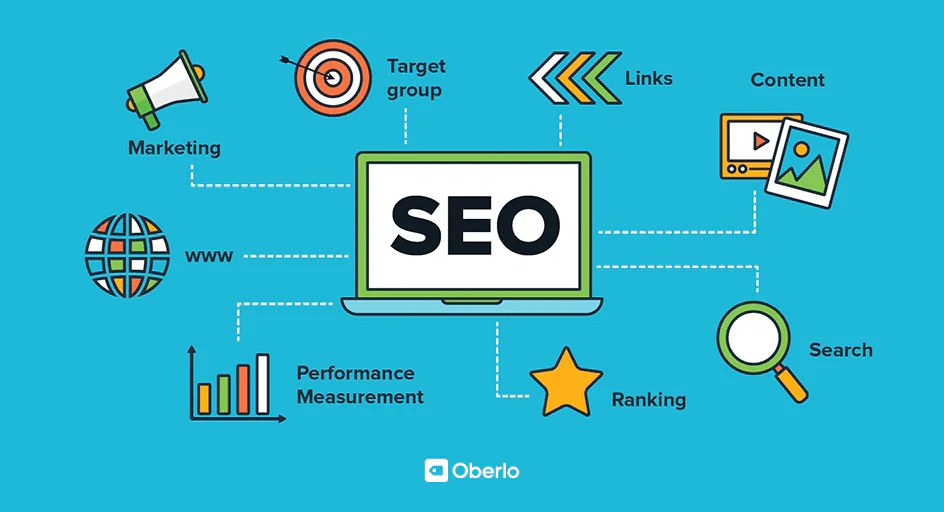SEO is one of the most valuable digital marketing strategies. It is measurable, sustainable, and cost-effective. It also creates brand equity and can lead to other business opportunities.
It starts with understanding what search engines are looking for. This involves researching keywords and ensuring that content answers questions and solves problems. Click https://www.lockindigitalpro.com/ to learn more.

Keywords are the words and phrases that search engines use to rank web pages in search engine results. They are a crucial part of any SEO strategy. When used effectively, they can help drive organic traffic to your website and increase sales. But choosing the right keywords is not easy. It requires thorough research and attention to your audience. Developing a list of keywords is the first step in any successful SEO campaign.
The purpose of keywords is to attract people who are looking for the products and services that you offer. By using the right keywords, you can make your content more visible to your target audience and improve your chances of ranking in the search engine result page (SERP).
When choosing keywords, it is important to consider their relevance to your content. You can find keywords with the help of free tools like Google AdWords, which allow you to see how many times a specific word or phrase has been searched each month. This will give you an idea of how popular or relevant a particular term is. You can also find out how competitive a certain keyword is by entering it into a search engine to see how many competing websites are listed.
There are several types of keywords that you should include in your content, including informational, navigational, commercial, and transactional. Informational keywords are those that provide an overview or explanation of a topic. These keywords can be very broad and can have high monthly search volumes. However, they can be difficult to rank for because of their popularity.
In contrast, navigational keywords are used to direct users to a specific location or webpage. These keywords are often location-based, such as a neighborhood or city name. They are critical for local businesses that want to attract customers within their service area. Commercial keywords are used to promote a product or service, such as “solar garden lights,” and are usually more specific than informational keywords.
Finally, transactional keywords are used to promote a product or business, such as “buy solar garden lights.” These are typically more specific than commercial keywords, and are generally easier to rank for because of their lower competition.
Content
Content is at the core of SEO because without it, your website will not be visible to search engines or users. It is the fuel that drives organic search engine traffic, and it can also impact other key business metrics like website conversions and traffic. Creating and optimizing high quality content can grow your audience and boost your bottom line. However, it is critical to understand the intent behind your keywords and your audience’s needs before you start creating content. This will ensure that your content is relevant and helpful to your audience, rather than just spamming keywords.
Search engines strive to return results that match the user’s query as closely as possible. This is because search providers are commercial enterprises, and the closer their results are to user searches, the more likely users will trust them. That’s why they invest so much in evaluating and ranking website content. Content quality is based on a variety of factors, including relevance to search queries, user engagement metrics, and adherence to SEO best practices.
The term “content” can refer to a range of types of information, from written text to images to video. Although text is still dominant for SEO, other content can play an important role in search performance. For example, visual content is a powerful way to capture attention and drive clicks. It is also a great way to share content and generate links.
Aside from text content, another important aspect of SEO is the meta description. A meta description is a short, descriptive summary of the page that appears in the search results. It is important to include the keyword in the meta description to improve visibility and boost ranking.
While SEO can seem intimidating, it can be a powerful tool for businesses of any size. With the right strategy, you can rank highly in search engine results pages (SERPs) and generate targeted organic traffic that leads to sales. SEO is an investment, but it is one that can pay off in the long run. For more tips on how to optimize your content for SEO, check out this guide from our partner, CloudWerks.
Link building
Link building is a crucial part of SEO, and it is a great way to drive traffic to your website. This is because links are one of the top ranking factors for search engines. In addition, they help search engines determine the relevance of a page. In other words, if a lot of people are linking to a page, it will likely rank higher on search engine results pages (SERPs).
There are several ways to build links, and the best ones come from natural sources. This includes creating and promoting quality content, interacting naturally with the online community, and other techniques. However, these methods take time and effort. It is also important to avoid “black-hat” techniques like buying links, which are against Google’s guidelines and can cause your site to be penalized.
When it comes to link building, there are two types of links: internal and external. External links are those that point to your site from other websites, and they are also known as backlinks. Google considers these links as a vote of confidence and trustworthiness, and they help improve a page’s web positioning.
Creating quality content is the key to getting other websites to link to yours. It must be something that is valuable to their readers, and it should be unique and interesting. For example, if you are a technology company, create an in-depth post explaining how your product works, or make a video that shows it in action. This will give other sites a reason to link to yours, and it will also increase the likelihood that they will promote your content.
Another good strategy is to find high-quality prospects, and then reach out to them. For example, if you notice that your competitors are receiving lots of backlinks, it might be a good idea to contact them and ask them for a link. However, remember that you should only contact reputable, authoritative websites, and do not try to manipulate them. For example, you should not email the New York Times and ask them for a link, but rather your friend’s small travel blog.
Analytics
SEO analytics is the process of analyzing and collecting data from a website to identify opportunities for improvement. These insights are then used to create an effective SEO strategy. This strategy can improve a website’s search engine optimization (SEO) performance, increase organic traffic, and drive conversions. There are many tools and platforms available to help you collect and analyze SEO data. These include all-in-one platforms, standalone tools, and custom software. Each tool offers a unique set of features and benefits. Some offer advanced reporting, while others are more basic and easy to use.
Using the right tools to track and measure your progress is critical for achieving your SEO goals. These tools can also provide information about the impact of your efforts on other marketing channels, such as pay-per-click ads and social media. In addition, these tools can help you improve your SEO processes and strategies to ensure that you are getting the best possible results.
One important tool is Google Analytics, which can help you track the effectiveness of your SEO strategy by revealing what pages are most popular and how people are finding them. You can also identify the keywords that are most valuable to your business and target these keywords in your content. Another great tool is Semrush, which can help you record the dates of your most important changes to the site. You can then review these notes later to see what effects they had on the performance of your site.
Measuring the success of your SEO efforts is crucial to ensuring that you are doing everything you can to boost your website’s rankings. This is especially true if you are working with a limited budget. SEO is not a “one and done” approach, and it can take time to see significant results. However, by using analytics tools like Google Analytics and Search Console, you can monitor the results of your SEO efforts and determine whether they are delivering the desired impact.
Among the key metrics to track is domain authority, which measures the overall quality and ranking potential of a web page or domain. This metric is calculated using various factors, including the number and quality of links to a page or domain. Other metrics to track include keyword density, keyword volume, and meta tags.


